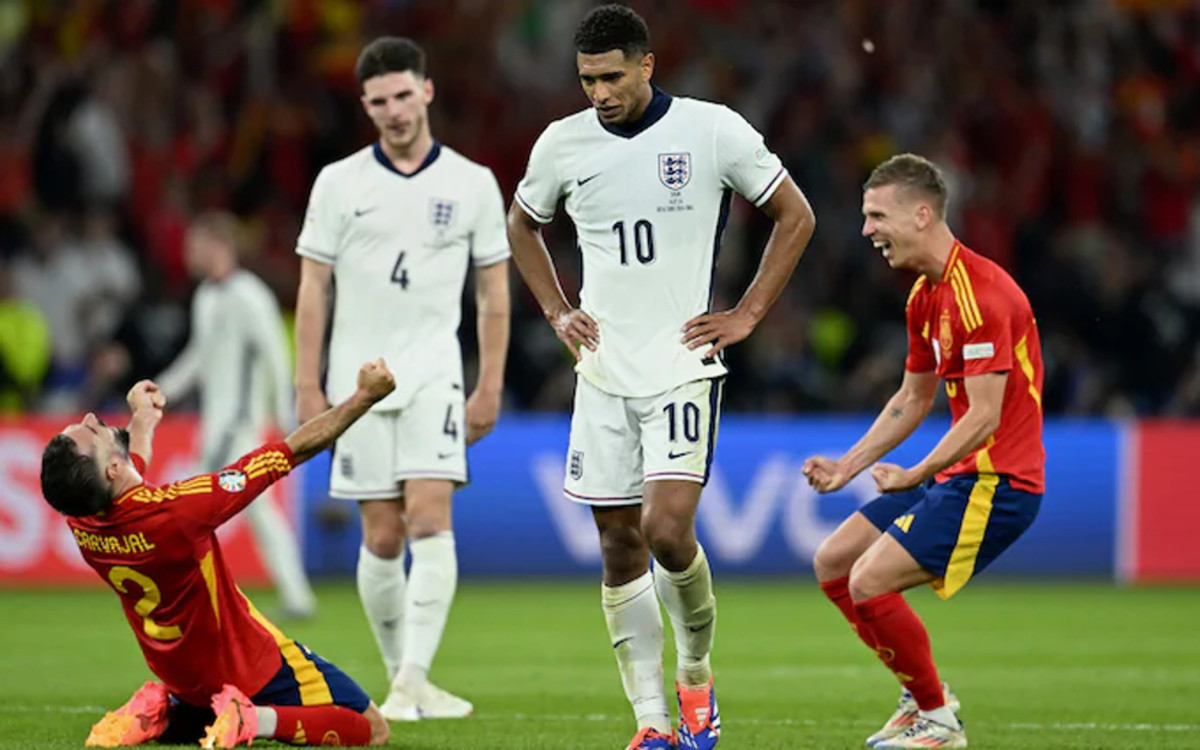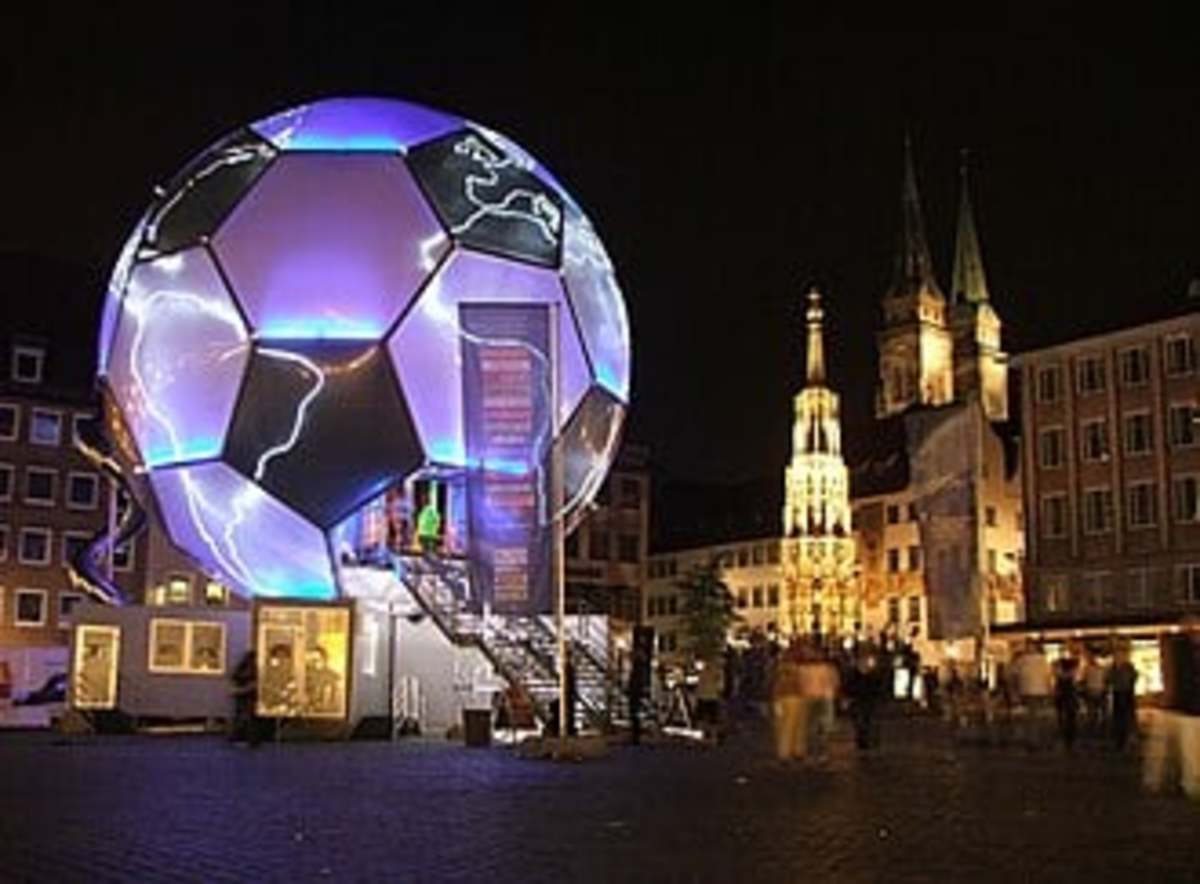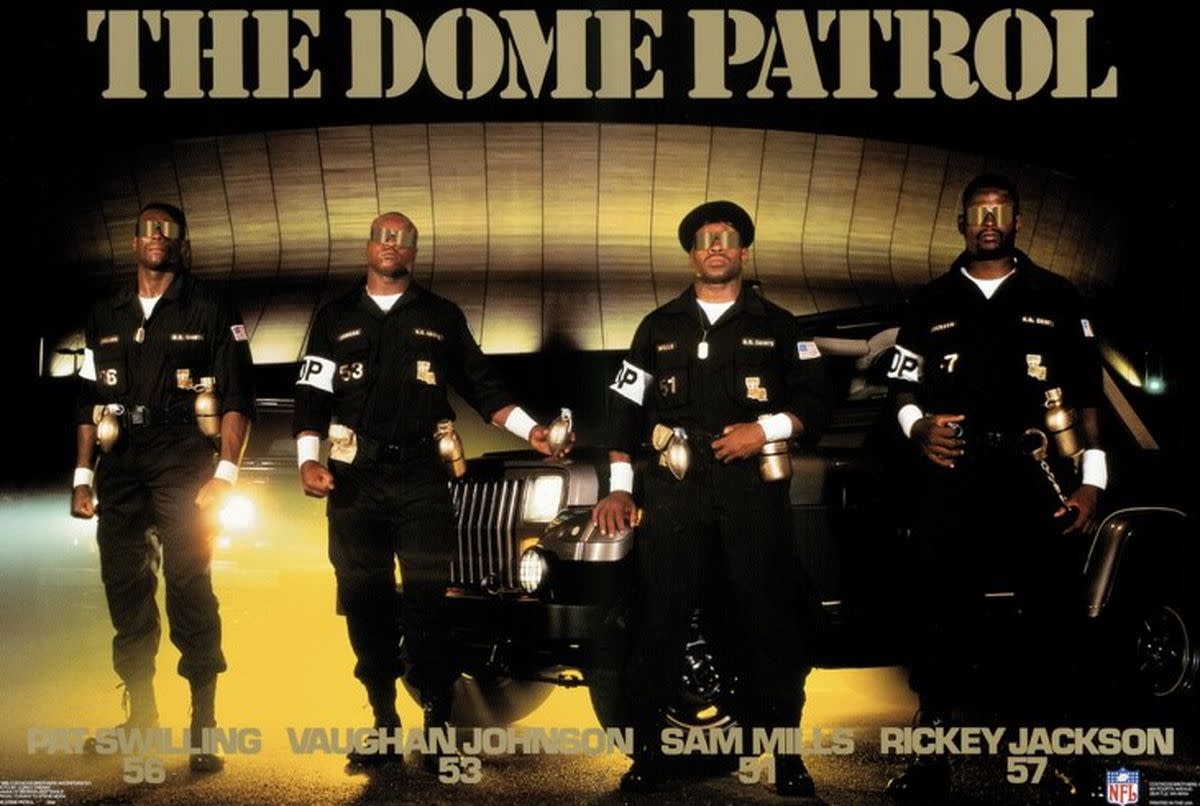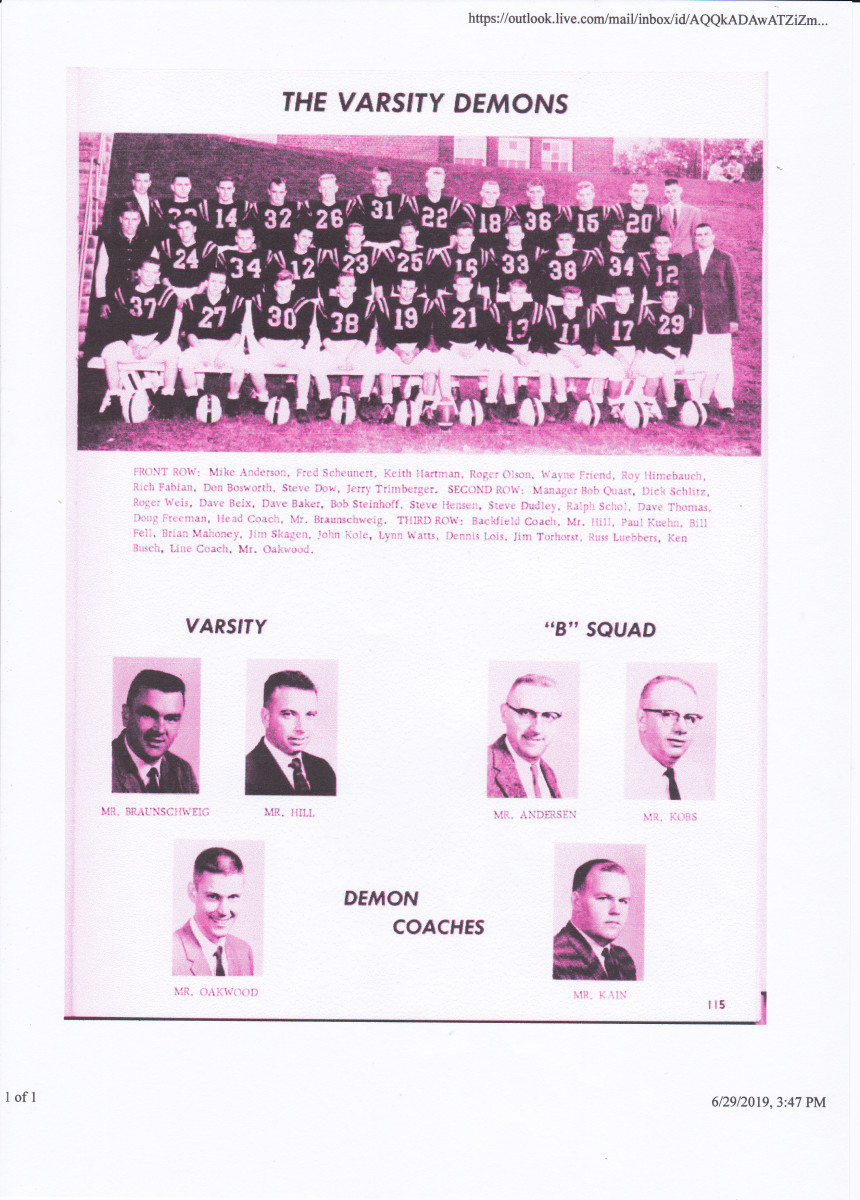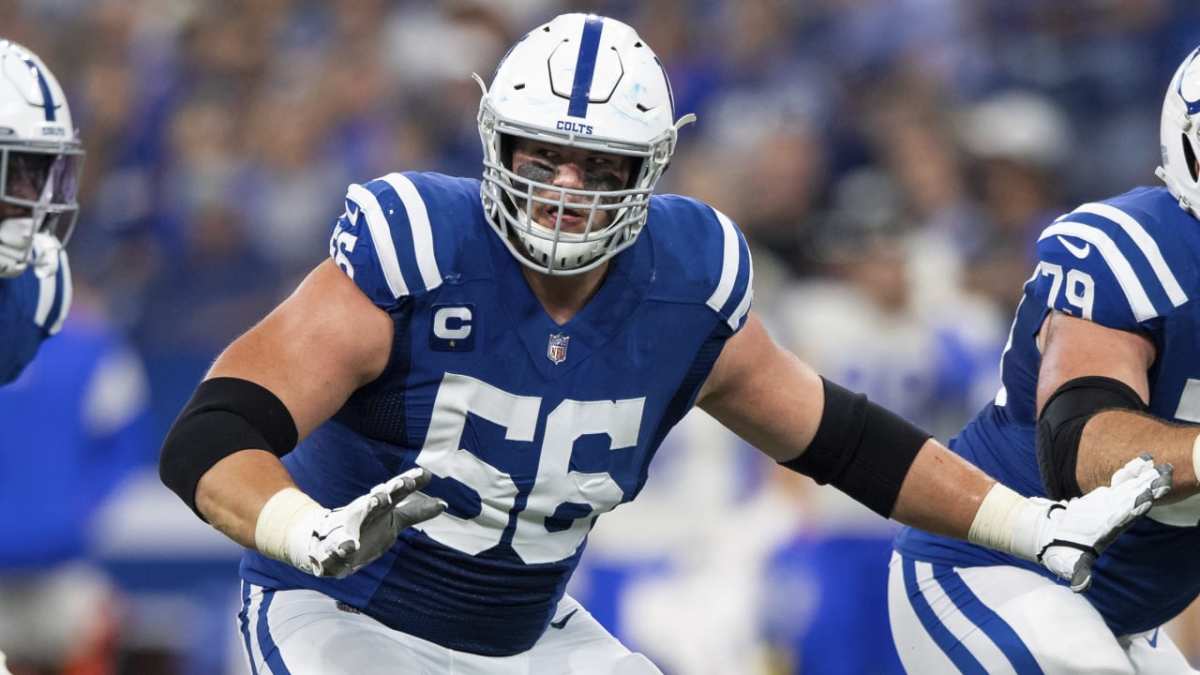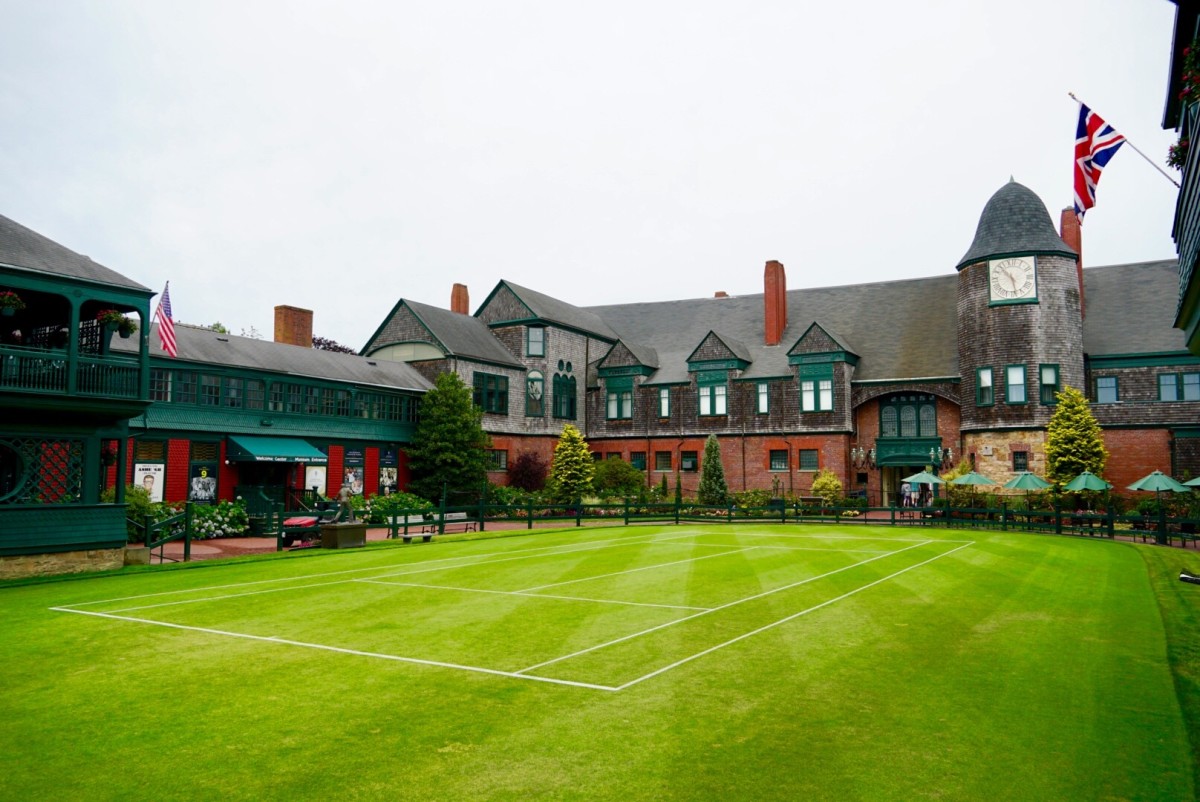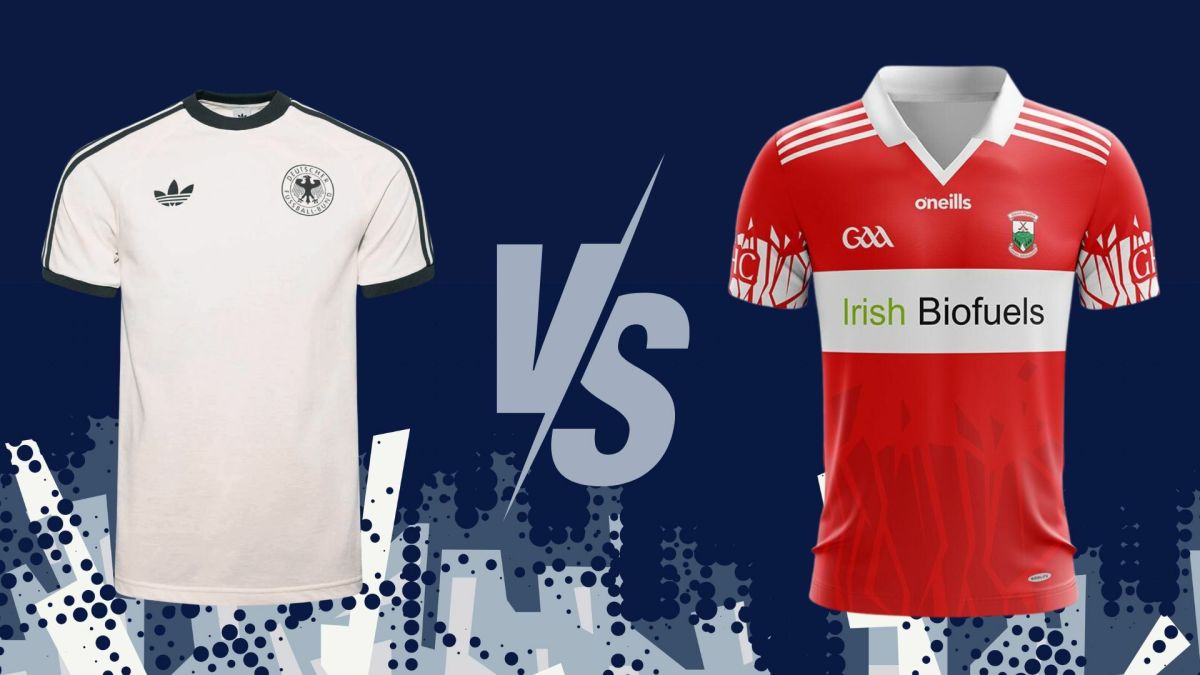The Indianapolis Colts: The Team That Almost Wasn't
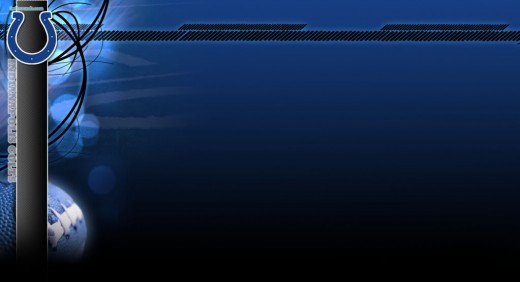
Most sports fans know that the Colt's former hometown was Baltimore, Maryland, but how exactly did they get to Indianapolis?
From beginnings as a semi-pro basketball team to Super Bowl champions in Indianapolis, the Colts have an unusual origin story.
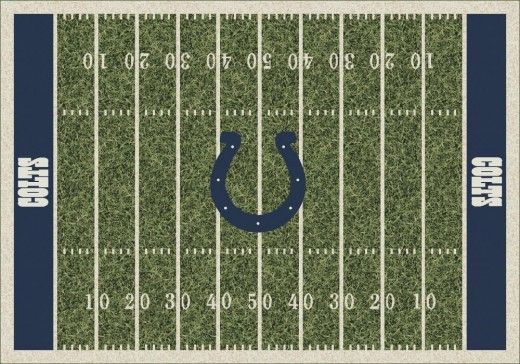
The Birth of a Football Team, or should I say Basketball Team
You didn't misread that. The original members of the Colts actually started out as a basketball team who went by the name of the St. Mary Cadets. Just as the Indianapolis Colts did, the St. Mary Cadets went on to become World Champions, with the sport being basketball, not football. After 5 years of playing basketball, the St. Mary's members formed a football team and disassembled their basketball program. The football team had a winning season each year and won a championship one of those years. In 1920, the Cadets changed their name to the Dayton Triangles and became one of the charter members of what we now know as the NFL.
The Colts Arrive to the NFL
The Dayton Triangles named themselves after their home stadium, Triangle Park. The Dayton Triangles went on to become one of the longest tenured traveling teams in the NFL. While all of the other NFL teams were signing top college recruits, the Triangles continued to sign local players, which eventually led to their failure as a competitive football team. Due to the lack of younger, better talent, the Triangles were only able to post 5 wins out of a 51 game span. Their decline would eventually lead to the team being sold for a bargain price
From Triangles to Colts
In 1930, the Triangles were sold to renowned bootlegger, "Big" Bill Dwyer. Since Dwyer already owned a hockey team in New York, he moved the Triangles to New York and ironically renamed them the Brooklyn Dodgers.
As "The Great Depression" settled in, Dwyer began to feel the financial effects and sold the Dodgers in 1932 for a measly $25,000 to Chris "Red" Cagle and John "Shipwreck" Kelly, both of which played running back for the Dodgers.
In 1934 Chris Cagle would end up selling his portion of the team to Dan Topping, a future owner of baseball's New York Yankees. Under Topping's ownership, the Dodgers remained a sub-par organization. The did, however, play and win the first ever televised NFL game in 1939.
While the next two years were the Dodger's best years to date, the growing war effort resulted in player shortage. The 1942 - 1944 season produced only 5 total wins. With many players and coaches going off to war, in 1945 the Dodgers combined with the Boston Yanks to become the New York Bulldogs. The merger only lasted a season, as the war ended in 1945 and players returned home. The two teams branched back out for a few seasons only to reunite in 1949 and be renamed the New York Yanks. After proving they were a solid team, the Yanks were sold back to the NFL in 1952, moved to Texas, and dubbed the "Dallas Texans". After the Texans were unproductive, they quickly went bankrupt and the team was awarded to the NFL. The NFL then placed a team in Baltimore, Maryland, where the Colts were born.
The Baltimore Colts
Led by coach, Keith Molesworth, it didn't take long for the Colts to rise to supremacy. In 1958 they won their first championship in an historic fashion. They had the New York Giants down 14-3 going into halftime, but after the Giants re-surged in the second half, the game ended in a 17-17 tie. This was the first recorded sudden death over time game in NFL history, and what better stage than the NFL Championship game. After a long pass to Raymond Berry, the Colts were on the opposing team's 1 yard line. Alan Ameche was able to punch it in for a touchdown, sealing the win for the Colts. This game has been dubbed as "The Greatest Game Ever Played."
The next year, 1959 , the Colts went on to face the Giants again in the Championship game, but this one was far less dramatic as the Colts won 31-16. The Colts would return to the NFL Championship game again in 1964, but lose to the Browns, 27-0.
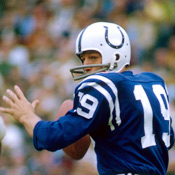
The Baltimore Colts Super Bowls
In 1969 the Colts reached their first Super Bowl. While this was actually the first championship game deemed to be a Super Bowl, the previous two championship games were also categorized as Super Bowls because they were between an AFL and NFL team. The Colts were favored heavily to beat the AFL contender, Jets in Superbowl III, but a young man by the name of Joe Namath was not about to let that happen. Before the game Broadway Joe guaranteed a win and followed up on his guarantee.
In 1971, the Colts would advance to the Superbowl again to face the Dallas Cowboys. The Cowboys led the game all the way up to the final two minutes of the game until Dallas Running Back, Dan Reeves, would fumble the ball, turning it over to the Colts in Dallas territory. The Colts went on to win the game on a 32 yard field goal with 5 seconds left.
After Superbowl V, the Baltimore Colts would not be able to return to their Championship form and were moved to the city of Indianapolis in 1984.
How the Colts got to Indianapolis
After several losing seasons, a hold out, and John Elway refusing to play for the Colts, owner Jim Irsay began to seek out another venue for his team. Several teams were in the running for the Colts, but only two would appeal to Irsay. Two days before the 1984 Superbowl, it seemed as if the Colts would be moving to Phoenix, Arizona. For one reason or another, Irsay cancelled further negotiations. Whilst all of this was going on, the New Orleans Saints were also looking to relocate and had Indianapolis in mind. Irsay was still unsure about where he wanted to move his team, but all of a sudden, the state of Maryland chimed in. The city of Baltimore was being given the right to seize eminent domain on the Baltimore Colts. This gave Irsay very little time to make his decision. The next morning, Irsay promptly called the Mayor of Indianapolis and agreed on a contract. 15 trucks arrived at the Baltimore stadium to gather all of the Colt belongings to transport to Indianapolis. Not long after all of the trucks departed, legislation was passed and Baltimore was awarded eminent domain, but by then the Colts franchise were on their way to Indianapolis. Each truck drove different routes in order to avoid being stopped by Maryland police. Upon their arrival to the Indiana state line, several State Troopers met and escorted them all the way to the Hoosier Dome.
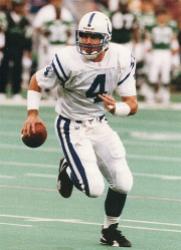
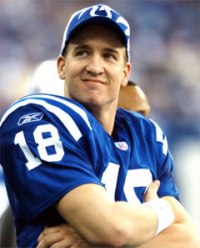
Start of the Indianapolis Franchise
The Colts would only register 3 winning seasons in their first 11 years in Indianapolis. After having back to back winning seasons in 1995 and 1996, the Colts once again fell to a losing season in 1997. They did, however, have some great young stars in Marshall Faulk and Marvin Harrison. It wasn't until the next season that they would snag their greatest player of all time, Peyton Manning. Bill Polian decided that they would rebuild their franchise via the Draft over the next few seasons, but it came a lot quicker than he expected. Even though the Colts had an identical season in Peyton's first year, their future was looking bright.
The next year they drafted former Miami Hurricane Running Back, Edgerrin James and turned their previous season numbers around, going 13-3. This was the largest turn around in the history of the NFL. After finally beating their rival, the New England Patriots, the Colts reached their first Superbowl in 2007, meeting the Chicago Bears in Superbowl XLI. They would end up defeating the Bears 29-17. In 2010 the Colts would return to the Superbowl, this time to face the lowly Superbowl virgin, New Orleans Saints in Superbowl XLIV. The Colts were unable to pull out a victory over the emotional Saints and fell 31-17, giving the Saints their first Superbowl win ever.
Who is the Greatest Colt of All Time?
Special Players
1rst Round Picks
| Hall of Famers
| Retired Jersey #'s
| Ring of Honor Members
|
|---|---|---|---|
1984 Leonard Coleman #4
| Johnny Unitas
| 19
| 12th Man
|
1984 Ron Solt #19
| Lenny Moore
| 22
| Bill Brooks
|
1985 Duane Bickett #5
| Eric Dickerson
| 24
| Tony Dungy
|
1986 Jon Hand #4
| Art Donovan
| 70
| Jim Harbaugh
|
1987 Cornelius Bennett #2
| Jim Parker
| 77
| Chris Hinton
|
1989 Andre Rison #22
| Raymond Berry
| 82
| Robert Irsay
|
1990 Jeff George #1
| Ted Hendricks
| 89
| Ted Marchibroda
|
1992 Steve Emtman #1
| John Mackey
| ||
1992 Quentin Coryatt #2
| Gino Marchetti
| ||
1993 Sean Dawkins #16
| Weeb Ewbank
| ||
1994 Marshall Faulk #2
| Don Shula
| ||
1994 Trev Alberts #5
| |||
1995 Ellis Johnson #15
| |||
1996 Marvin Harrison #19
| |||
1997 Tarik Glenn #19
| |||
1998 Peyton Manning #1
| |||
1999 Edgerrin James #4
| |||
2000 Rob Morris #28
| |||
2001 Reggie Wayne #30
| |||
2002 Dwight Freeney #11
| |||
2003 Dallas Clark #24
| |||
2005 Marlin Jackson #29
| |||
2006 Joseph Addai #30
| |||
2007 Anthony Gonzalez #32
| |||
2009 Donald Brown #27
| |||
2010 Jerry Hughes #31
|
Former Colt Greats and Past Stars
- Joseph Addai
- Trev Alberts
- Ashley Ambrose
- Flipper Anderson
- Cornelius Bennett
- Donald Brown
- Dallas Clark
- Quentin Coryatt
- Sean Dawkins
- Richard Dent
- Tom Detwiler
- Eric Dickerson
- Mike Doss
- John Elway
- Marshall Faulk
- Justin Forsett
- Dwight Freeney
- Mike Furrey
- Jeff George
- Tarik Glenn
- Martin Gramatica
- Jon Hand
- Jim Harbaugh
- Marvin Harrison
- Ben Hartstock
- Jessie Hester
- Qadry Ismail
- Edgerrin James
- Bert Jones
- Don Majkowski
- Peyton Manning
- Robert Mathis
- Ron Mix
- Lenny Moore
- Rob Morris
- Browning Nagle
- Freddie Joe Nunn
- Jim Parker
- Roosevelt Potts
- Marcus Pollard
- Ricky Proehl
- Simeon Rice
- Andre Rison
- Sean Salisbury
- Bob Sanders
- Jeff Saturday
- George Shaw
- Corey Simon
- Tony Siragusa
- Bubba Smith
- Brandon Stokely
- Matt Stover
- Larry Tripplett
- Tom Tupa
- Floyd Turner
- Tony Ugoh
- Ben Utecht
- Mike Vanderjagt
- Adam Vinatieri
- Steve Walsh
- Reggie Wayne
- Doug Widell

